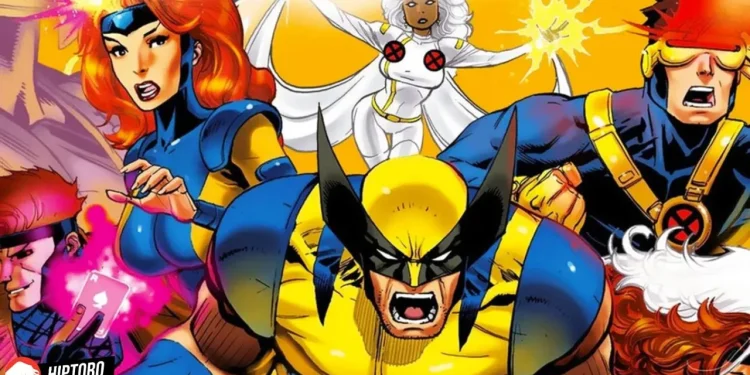X-Men ’97, the latest addition to Marvel Studios’ expansive roster, has stirred up a whirlwind of excitement with its announcement as a Disney+ animated series. As anticipation mounts among fans, one burning question takes center stage: Does X-Men ’97 carve out its niche within the MCU’s ever-expanding multiverse?

The Legacy of X-Men Animated Series Continues
X-Men ’97 is heralded as the spiritual successor to the beloved mid-90s cartoon, X-Men: The Animated Series, continuing the adventures that captivated audiences decades ago. Positioned in the same fictional reality, Earth-92131, it diverges from the mainstream MCU continuity, which primarily unfolds on Earth-616 or Earth-199999. Beau DeMayo, the showrunner of X-Men ’97, confirmed in a recent Instagram story, emphasizing that the series is “[its] own thing.”
This distinction might lead some to conclude that X-Men ’97 is an entity unto itself, unrelated to the intricate web of stories within the MCU. However, the introduction of the multiverse concept within the MCU blurs these lines, suggesting that all Marvel movies and TV shows, regardless of their primary setting, are technically part of a grander, canonical tapestry.
First official trailer for ‘X-MEN ‘97’.
Coming to Disney+ on March 20. pic.twitter.com/wj3xcPnDH9
— Cosmic Marvel (@cosmic_marvel) February 15, 2024
X-Men ’97: A Multiversal Connection
The MCU’s embrace of the multiverse has opened doors to countless narrative possibilities, including the integration of realities outside Earth-616/199999. This is exemplified by the Disney+ anthology series What If…?, which explores alternate realities within the Marvel universe.
The inclusion of nods to pre-MCU legacy productions, such as sampling the X-Men: The Animated Series theme tune in Doctor Strange in the Multiverse of Madness and Ms. Marvel, further cements the connection between X-Men ’97 and the broader MCU.
Despite DeMayo’s initial statements distancing X-Men ’97 from the MCU, his comments in an earlier interview with The Direct hinted at a more nuanced relationship. Without confirming any direct crossover, DeMayo teased that the question of ’97‘s place within the MCU would be a topic of discussion among fans throughout the show’s first season.

The Verdict: A Multiverse of Possibilities
The evidence suggests that X-Men ’97, while maintaining its unique identity and continuity, is intricately linked to the MCU’s multiversal narrative framework. It may not directly influence the events of Earth-616/199999, but it is undeniably a piece of the Marvel puzzle.
Marvel Studios’ strategy of weaving legacy productions into its multiverse not only honors the rich history of Marvel animation but also enriches the MCU with a depth of storytelling that acknowledges its roots. As X-Men ’97 prepares to launch, it’s clear that Wolverine and the gang, though charting their own course, are part of the vast, interconnected universe that fans have come to love.
While the show proudly stands as a continuation of its beloved predecessor, its existence within the MCU’s multiverse hints at a broader narrative inclusion. Fans may not see direct crossovers, but the acknowledgment of X-Men ’97 within the MCU’s multiversal saga is a testament to Marvel Studios’ commitment to a cohesive, expansive universe that celebrates its diverse storytelling heritage.










